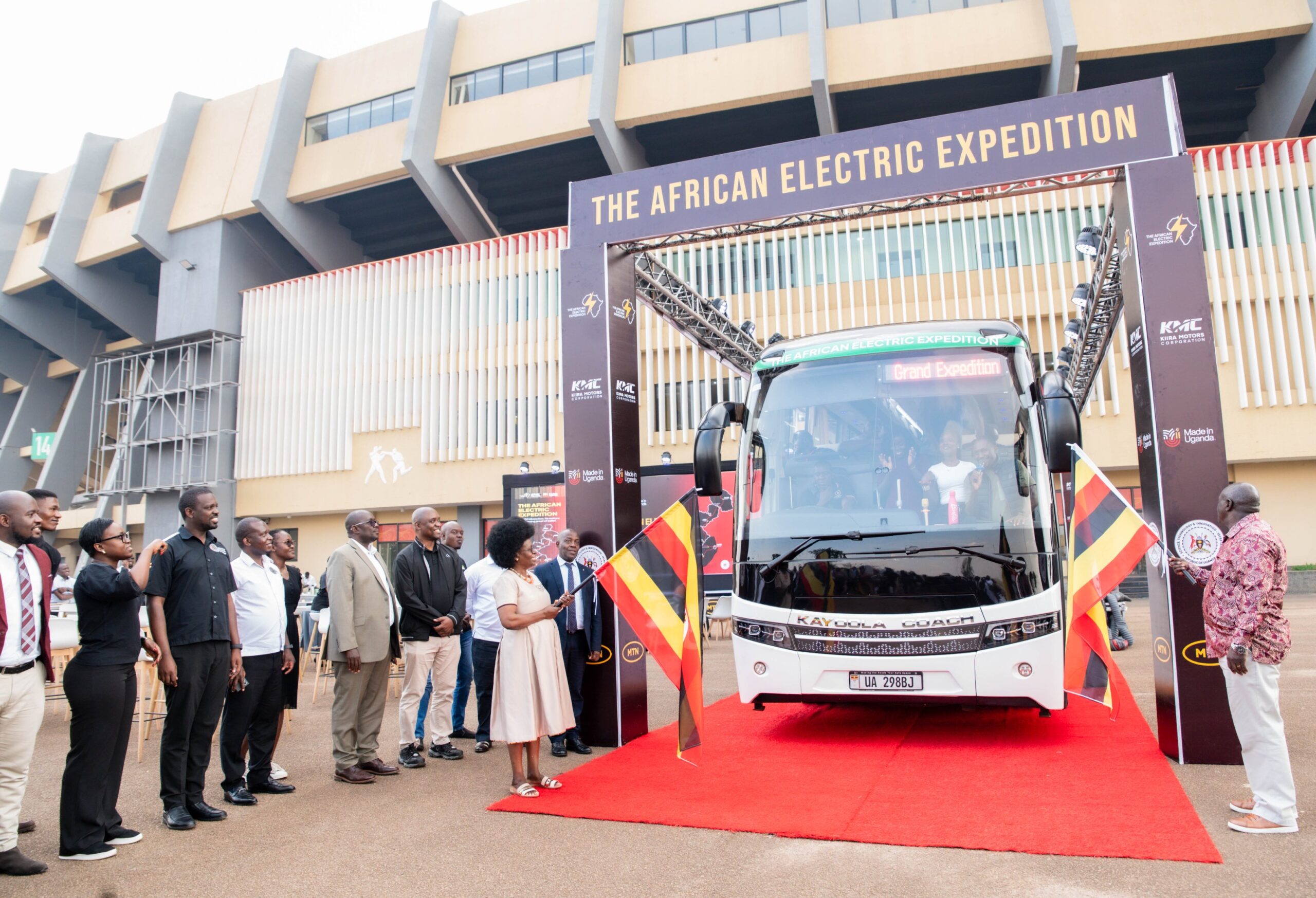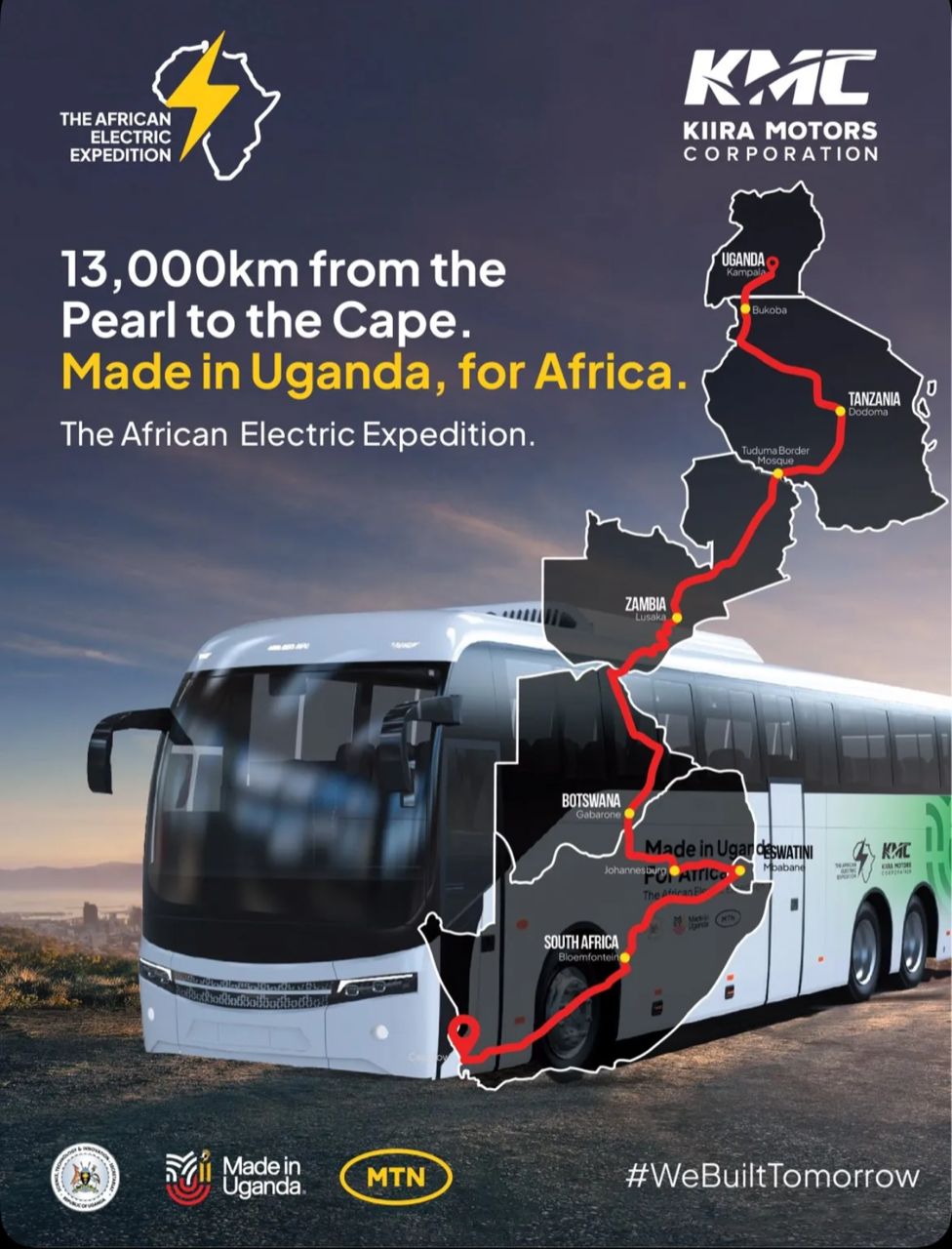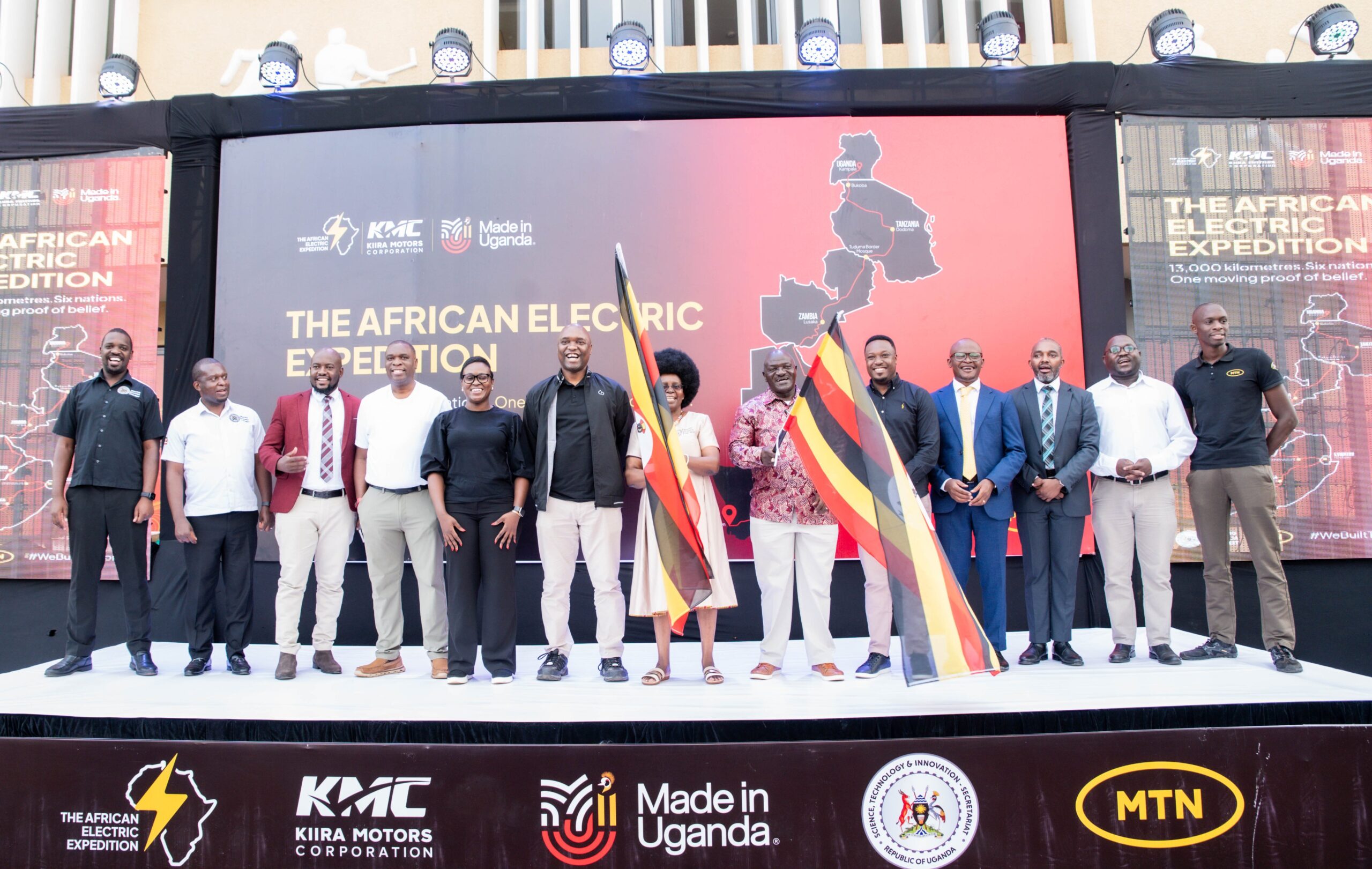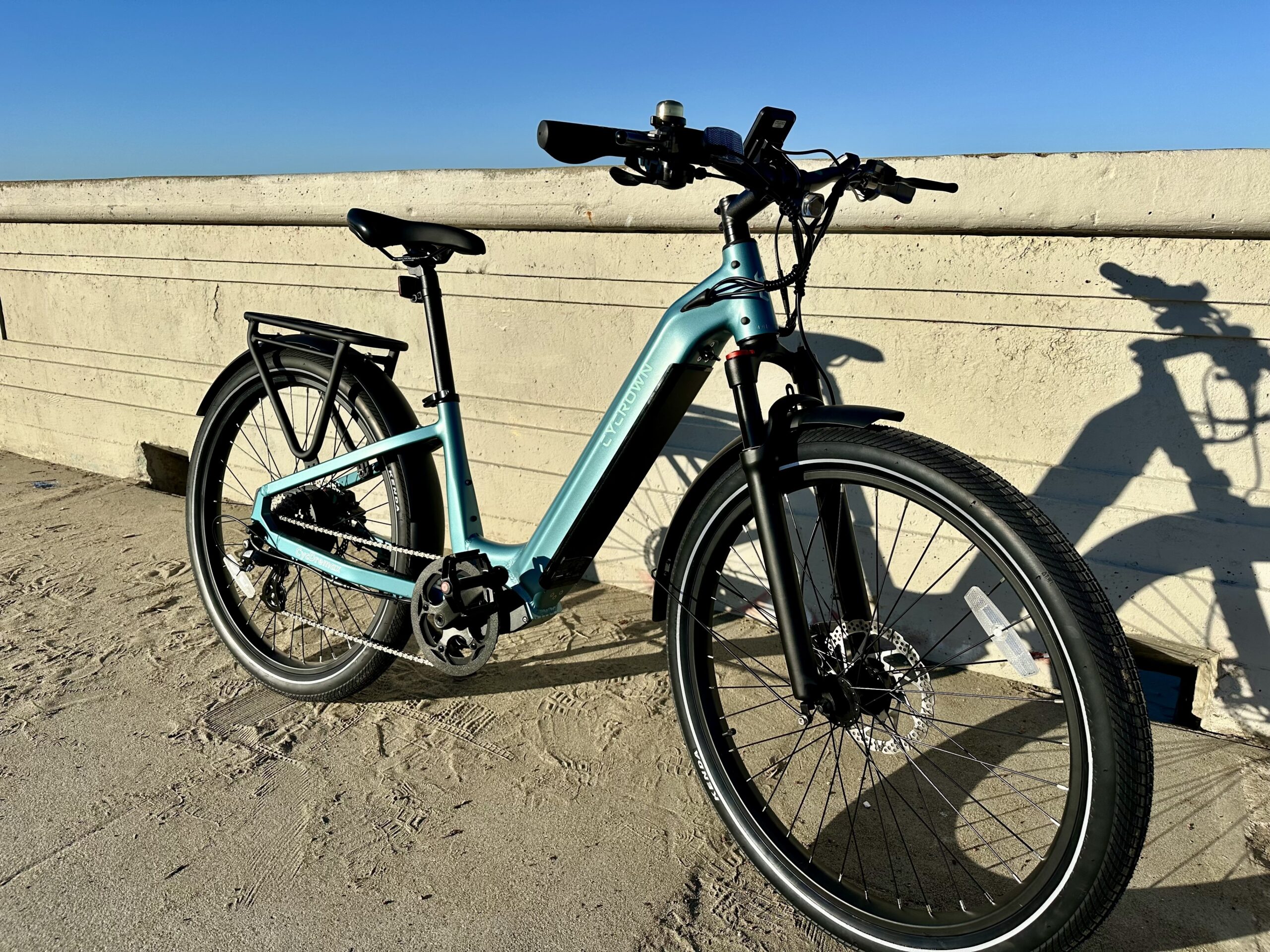Support CleanTechnica’s work through a Substack subscription or on Stripe.
Uganda’s Kiira Motors Corporation (KMC), an electric vehicle manufacturer based in Jinja, Uganda has taken a bold step to showcase its new electric coach, the 2025 Kayoola Electric Coach 13M.
Under the theme “Made in Uganda Grand Trans-Africa Electric Expedition,” this trip will be a historic 30-day journey spanning over 13,000 kilometers across six African nations: Uganda, Tanzania, Zambia, Botswana, Eswatini, and South Africa. The organizers say the expedition serves as a powerful declaration of Uganda’s technological advancement and industrial leadership, presenting homegrown solutions that address continental challenges in mobility and climate change.

Here is a summary of the specs of the new electric coach:
- Kiira calls it a “Premium African Solution” — The Kayoola E-Coach 13M Model 2025 is a premium inter-city, high-floor electric bus aimed at addressing the need for novel and innovative transportation.
- It is a fully electric vehicle. It delivers a maximum motor power of 400 kW and torque of 5000 Nm, allowing for a smooth and powerful ride across varied African terrain.
- Exceptional Range: The coach is equipped with a 422-kWh battery which provides an impressive driving range of 500 kilometers on a single charge. Its top speed is 100 km/hr.
- Passenger Comfort and Connectivity: The interior is designed for a world-class travel experience. It offers flexible passenger carrying capacity, up to 64 passengers (3+2 layout). High-backrest reclining passenger seats are fitted with 3-point seatbelts and a USB charging port (5V/2100MA) at each seat. Onboard entertainment is provided by two 19-inch LCD monitors. Continuous communication is ensured with a 4G/LTE Wi-Fi router.
- Safety and Engineering: The coach features an Electronically Controlled Air Suspension system and a Double Circuit Fully Pneumatic Disc Braking System. Safety is enhanced with a reversing radar and camera system.
In this 13,000km road trip, the coach will be a rolling exhibition to showcase that locally-designed technology is reliable and scalable for long-distance, cross-border use.
This mission has been planned to activate new regional markets, position Uganda as a hub for high-value manufacturing, and reinforce a Pan-African vision for industrial resilience and unity. This initiative was made possible through a strategic public-private partnership, acknowledging the critical participation of MTN Uganda as the lead sponsor and connectivity partner, the Made in Uganda (MIU) initiative, Kiira Motors Corporation (KMC), and the Science, Technology, and Innovation Secretariat (STI-OP).
As the Kayoola Electric Coach traverses the continent, it carries a core message: African solutions can solve African challenges, redefining the future of transport, climate action, and industrial growth. Below is a look at the route map.

The bold trip will be a challenging and real life testimony of the progress made over the past decade by players in the electric mobility sector in East and Southern Africa. One of the major challenges will be access to public charging. That’s because outside of South Africa, there are not many public chargers yet on most of the main highways, especially DC fast chargers. However, a trip like this will go a long way to showcase that electric road trips are now possible across several countries and will only get better from now on as most certainly, more investment into charging infrastructure will happen going forward as more EVs start to arrive in these countries.

This historic 13,000km trip will be undertaken over a period of 30 days. 15 days from Kampala, Uganda, to Cape Town, including rest days and some scheduled events and then another 15 days from Cape Town back to Uganda. During this period, participants will take time to engage with local communities along the way to raise awareness around electric mobility and homegrown industrialization initiatives. They will also meet with several key stakeholders in the automotive industry in these countries to essentially showcase the capabilities of this bus and help build a pipeline of customers. It would be great if bus operators in East and Southern Africa, as well as the rest of the continent, could support companies like Kiira Motors Corporation that are building buses locally here in Africa. Hopefully there could be opportunities on this to explore opportunities to incorporate more local content in the manufacturing of these electric buses, including sourcing materials from the East and South African regions.
These cross border trips are vital in the quest to raise awareness. Another exciting cross border challenge some months back was a partnership between Stellenbosch University and the Kenyan electric motorcycle manufacturer, Roam, that took Roam Air motorcycle on a 6,000-kilometer trip in an unprecedented showcase of African innovation and powered solely by solar energy. The electric motorcycle covered over 6,000km from Nairobi, Kenya, to Stellenbosch, South Africa. This expedition marked the first time an African-designed electric motorcycle covered such a distance. The trip successfully tested the performance of Roam Air’s drivetrain, portable charging dual batteries, as well as a portable solar recharging solution. The portable solar charging solution had a 14.3 kWh Balancell DC battery and 10x545W bifacial solar panels which were transported in a support car.
Even long cross country trips also make a huge impact. South Africa’s Automotive Business Council, naamsa, recently held its 90th anniversary as part of the South African Automotive Week 2025, in Gqeberha, in the Eastern Cape, South Africa. That meant, for this year’s event, an exciting opportunity for a road trip arose. The event became an exciting destination for electric vehicle road trippers from Johannesburg, Durban, and East London. The total distance of the electric vehicle road trip covered more than 4,000km with six 100% electric vehicles, and a few plug-in hybrids, for the 50+ participants. The electric vehicles used on the 2025 road trip included the BYD Sealion, Leapmotor B10, Mini Cooper SE, Volvo EX30 Cross Country, EX90, and XC40, showing the increasing variety of BEVs and PHEVs now available on the South African market.
Ryan Jarret is another prominent ambassador for electric vehicle road trips in South Africa. Ryan recently drove through parts of the Eastern Cape and experienced this network firsthand. Under the Explore South Africa, Electric Edition series, Ryan has been going on multiple long distance journeys across South Africa. The project’s goal is to showcase the beauty of South Africa through the lens of electric vehicles. South Africa is a country of endless roads, beauty, epic landscapes, and natural environments, as well as a mix of cultures and interests of those people and cultures. Ryan has already taken different electric vehicles on a number of road trips to prove that EVs are not only a great option to travel with, but also to prove that the charging infrastructure is already more than sufficient to facilitate these journeys in South Africa.
Images courtesy of Kiira Motors Corporation
Sign up for CleanTechnica’s Weekly Substack for Zach and Scott’s in-depth analyses and high level summaries, sign up for our daily newsletter, and follow us on Google News!
Have a tip for CleanTechnica? Want to advertise? Want to suggest a guest for our CleanTech Talk podcast? Contact us here.
Sign up for our daily newsletter for 15 new cleantech stories a day. Or sign up for our weekly one on top stories of the week if daily is too frequent.
CleanTechnica uses affiliate links. See our policy here.
CleanTechnica’s Comment Policy




